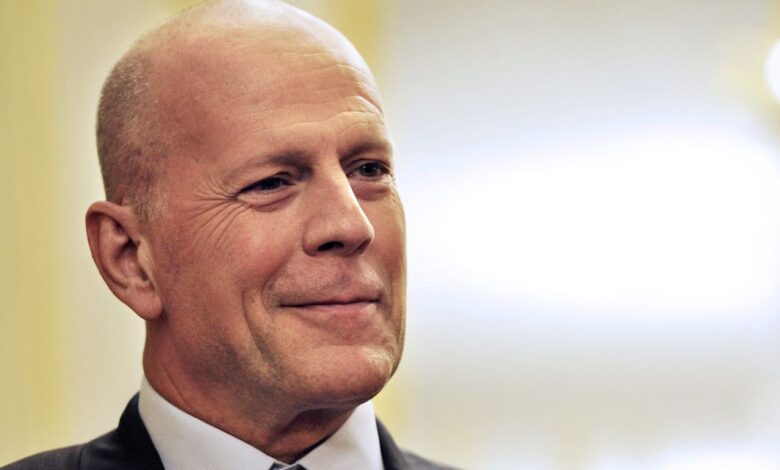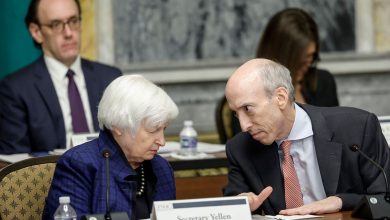Opinion: Medicare just crushed the hopes of 750,000 Alzheimer’s patients a year

[ad_1]
Three years after Uncle Sam spent $4 trillion trying to fight a disease that ended up killing (or helping kill) one million Americans, the Centers for Medicare and Medicaid Services is refusing to spend 0.4% as much fighting a disease that is killing six times as many people—and rising.
Those are the stark numbers behind the refusal to approve payment for a breakthrough Alzheimer’s drug that could give hope, and maybe one or two years more of a normal life, to 750,000 Americans and their families—every year.
Gee, where are all the cries of “granny killers!” now? Instead the silence is deafening.
Last week the administration dismissed the pleas of the Alzheimer’s Association, the American Academy of Neurology, 94 Senators and Congressmen (of both parties), and legions of others, and refused to approve Alzheimer’s drug lecanemab (sold under the brand name Leqembi) for payment by Medicare, leaving the $26,000 drug beyond the reach of most.
The drug has been shown to slow down dementia dramatically in its early stages. Some estimates reckon it could delay the move from mild cognitive impairment to full blown dementia by as much as two years. That’s two extra years of reasonably normal life for people, and their families, being devastated by this terrible, brain-destroying disease.
Actor Bruce Willis is only the latest celebrity to be stricken by dementia.
The Alzheimer’s Association, which has tried to get the administration to reverse its refusal to cover the drug, said it was “appalled” by the decision. It estimates that more than 2,000 people every day are crossing over that invisible line from cognitive impairment to dementia. That’s more than 750,000 parents, grandparents, siblings, friends, children and spouses every year.
The Centers for Medicare and Medicaid, the federal agency that would need to approve the drug, said in a statement “we regret that the decision could not be more favorable.” The CMS said there was not yet enough evidence showing the new drug was “reasonable and necessary.” The agency said it is willing to review the situation when there is more evidence.
A study published in the New England Journal of Medicine showed that the drug slowed the rate of cognitive decline by 27% over 18 months.
“The effectiveness of the drug is something we’ve been waiting for, for four decades,” says Jim Taylor, whose wife has Alzheimer’s and who runs the nonprofit Voices of Alzheimer’s. “It’s wonderful.”
Rob Egge, head of public policy for the nonprofit Alzheimer’s Association, says the ruling is the first time in history that Medicare has refused to cover a drug that has been given FDA approval.
“It’s the first ‘National Coverage Determination’ that explicitly does not cover an FDA approved drug or class of drugs,” he says. “There is no other NCD like this. This really is unprecedented. They are leaving patients without recourse.”
It would be easy demagoguery to blame the drug companies (inevitably “greedy”), and say the drug should be cheaper. Alas, these drugs don’t grow on trees. Despite the assumption that drug development is simply a license to print money, Biogen
BIIB,
and Eisai
4523,
have underperformed both the S&P 500
SPX,
large cap index and the Russell 2000
RUT,
small cap index over the past 3, 5 and 10 years.
The laws of economics are not complex. The higher the financial returns from drug discovery, the more people will invest in it and the more drug discovery we will get. Lifesaving drugs are not developed by political demagogues, nor by social justice warriors.
The CMS says it will cover the costs of the drug if you are taking part in randomized controlled trials. How 2,000 people per day could take part in such trials is a mystery for another day.
If Medicare covered the drug, paying the usual 80%, the bill would run to about $14.6 billion a year. That’s not cheap. There again, we’d also save a lot of costs because people with mild cognitive impairment need a lot less care than those with full-blown dementia.
And that’s ignoring the human aspect.
Covid helped kill one million Americans. Alzheimer’s is killing six million. And rising.
Covid had a survival rate of 99%. Alzheimer’s: 0%.
[ad_2]
Source link



